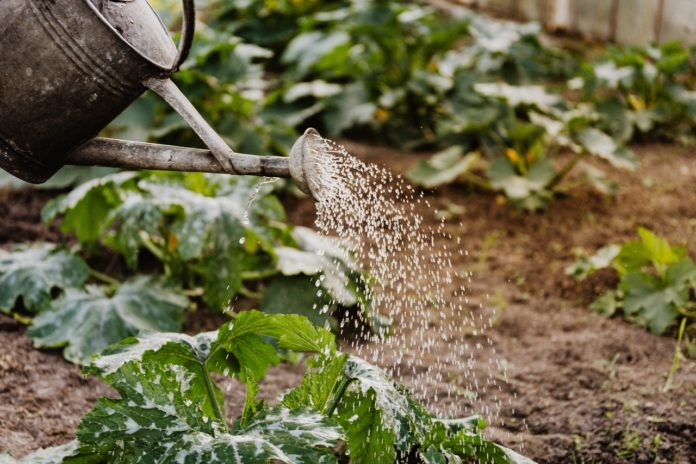Djo BaNkuna aka “The Cabbage Bandit” was threatened with arrest for having a vegetable garden on the pavement in front of his home. He has since been given a R1500 fine for obstructing sidewalk space reserved for pedestrians. BaNkuna’s intentions with his garden may be questioned. However, there is no denying that food security is an important issue in South Africa. The Daily Vox took a look at the cabbage furore, and the importance of urban farming.

RELATED:
The Rise Of Urban Farming In Johannesburg
The Tshwane Metro Police Department (TMPD) has said Nkuna did not own the land. This means he could not decide to use it for agricultural purposes. He was also in violation of the Road Traffic Act 96 of 1996, by causing an obstruction. The TMPD also said Nkuna could have made use of the City of Tshwane’s “adopt a spot” programme but did not. This is a programme which encourages the public to take care of the environment by beautifying public spaces.
Related
South African riots and food security: why there’s an urgent need to restore stability
What the city rules says
Tshwane’s environmental and agriculture department’s mission is to ensure a sustainable and equitable agricultural development. One of its key objectives is to provide basic farming infrastructure and develop agriculture. It also facilitates Black economic empowerment in agriculture, and establishes homesteads and community food gardens.
Nkuna contravened a municipal bylaw section 8(1) that states “the road reserve belongs to the municipality”. This bylaw means a person must seek permission to do anything on someone else’s property; the City of Tshwane in this case. The Constitution of South Africa gives municipalities the power to pass their own legislation, in the form of by-laws. By-laws are laws managed by municipalities. They hold the same power and force as national and provincial laws.
Other cities
The City of Cape Town (CoCT) has adopted a more amiable approach. Grant Twigg, mayoral committee member for urban management said the CoCT encourages people to start up vegetable gardens. The by-law that would come into play would be the use of municipal property without permission, Twigg said. Twigg also said there needs to be space for pedestrians, and not complete obstructions.The CoCT encourages planting vegetables to support communities.
“Normally it would be somebody who reports the problem but our officials do not just go around and harass people when they do something like that. There are gardens all around Cape Town that have been going for a long time,” said Twigg.
Food Security and Hunger
BaNkuna might have reportedly violated municipal laws, but here’s a few ways by-laws intersect with important issues like hunger.
Statistics South Africa report on food security released in 2019 suggested around 6.8 million people went hungry that year. A quarter of these numbers were in Gauteng, and two-thirds of those in urban areas. People had no money to buy food or grow their own. The Covid-19 pandemic worsened things. The National Income Dynamics-Coronavirus Rapid Mobile Survey showed almost 50% of South African households ran out of money for food in April 2020. By mid-2020, 21% of those households reported that someone had gone hungry in the previous week.
Small-scale vegetable patches directly impact people’s immediate surroundings. These are the effects of urban farming. The food is distributed locally and reduces the carbon footprint. It supports those in need, uplifts the community and provides nutritious food.
Related
We speak to Khanya Mzongwana on growing food and your life
Growing your own food
Here’s how to go about growing your food without getting in trouble with the law. Once you have found a spot to start your vegetable garden, check in with your municipality first. Seek the necessary permission if you are going to plant on municipal land, or any land you don’t own.
Involve your community, and get organised. There may even be an opportunity to fund-raise for the start-up costs. Remember it should be close to a water source. Research the soil you intend to plant on, and what will grow best each season. This guide gives introductory information about how to start an urban community garden in a city.
Related
Wits Project Aims To Create Sustainable And Healthy Eating On Campus
Only 13% of South Africa’s small and micro-farming community are back to pre-pandemic production levels. Laws and by-laws are not above amending to fit into the way our lives and communities are changing rapidly. Communities should also be informed of rules and regulations they have to comply with. A vegetable garden is about growth and sustainability.
Perhaps municipalities should swap iron fists loaded with fines, for green thumbs to assist folks.
Related
These startups and community projects are providing food during COVID-19
Feature image via Pexels









